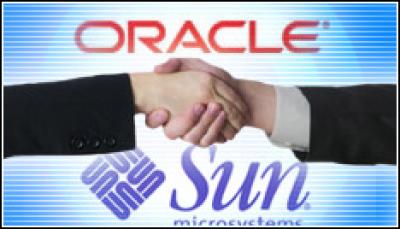Oracle Promises Business As Usual For Java

Developers can expect is consistency as far as Java is concerned, according to an Oracle executive
When Oracle lays its cards on the table to present its roadmap for the combined Oracle and Sun Microsystems organisation, one thing developers can expect is consistency as far as Java is concerned, according to an Oracle executive.
In a meeting with eWEEK on 26 January, just a day before Oracle CEO Larry Ellison and other Oracle executives are scheduled to unveil Oracle’s plans for integrating Sun’s assets, Robert Shimp, vice president of technology marketing at Oracle, told eWEEK: “You’re going to see business as usual as far as the whole Java business goes.” Without going into specific details, Shimp indicated that Oracle’s stance vis-a-vis the Java platform will be at least on par with Sun’s, if not better for developers. In short, Oracle is expected to maintain a status quo situation with Java.
“We are very much committed to open, standard computing,” Shimp said. “So we are going to continue to drive a lot of the open standards and open source projects [that both Sun and Oracle have participated in]. We’re also committed to customer investments in the Sun platform. So we’re going to invest more than ever in SPARC, in Solaris, in Intel and Linux, too. I think customers will be very pleased with the product roadmap that they see coming out of all this.”
Overall, at the 27 January Oracle Hardware and Software Strategy event that will take place at the Oracle Conference Center in Redwood Shores, Calif., the company will focus on three key messages: the future of its combined Oracle/Sun products, customer relationships and business models, Shimp said.
“When it comes to products, we’re going to talk about how Oracle is able to deliver completely integrated solutions from the application level all the way down to the disk,” Shimp said. That includes all Oracle software, database and other applications, and Sun hardware servers, storage, virtualisation and so on — “all engineered tested and certified to work together,” he said.
Moreover, “The thing that makes that unique is that Oracle is really the only company now in the marketplace that can deliver all of that,” Shimp said. “IBM, HP, SAP, Microsoft, they all are missing some significant part of the equation — such as the applications or the hardware, or all of the infrastructure. So we think we have a significant opportunity to grow a huge new business for Oracle out of this.”
Oracle also will describe its plans to innovate across the stack and between different layers of the stack to add functionality that will increase the overall performance and the security and reliability of the systems the company will offer.
“You’re going to hear about how we’ll deliver more complete and integrated systems that will dramatically change the landscape in the marketplace,” Shimp said. “We will provide everything that you need to deliver a complete solution in the data centre. The business model is to get out in the marketplace, compete and grow this business. We are very optimistic about our ability to build a significant hardware business for Oracle.”
Also on the products front, Oracle will provide more industry solutions, according to Shimp.
“Oracle is already number one in things like retail and telecommunications for software, and Sun also has a significant industry footprint for example in the telecom industry with their Netra servers,” he said. “And that’s going to expand our footprint and give us a stronger position in those types of markets.”
Regarding the overall business model for the newly enriched Oracle organisation, Shimp said the company will remain focused on ways to streamline the business.
“However, I do think that it’s important to note that any reports about large employee layoffs are incorrect,” Shimp said. “There is going to be restructuring that eliminates redundancies in some parts of the business. But there’s also going to be additional new hiring in other parts of the business. So I would characterize this as much more of a transformation of the business — actually getting it better aligned for growth.”
Meanwhile, on the customer relationships front, Oracle will move to add some “balance” to the Sun channel strategy, Shimp said.
“At Sun, in the last few years they had moved to a 100 percent indirect model where they sell through partners,” he said. “Oracle is taking a more balanced approach. We have direct sales and we also have sales through indirect partners. And we’re going to move the Sun business to that same model — essentially exactly the same model that the Oracle software business uses today.”
In addition, Shimp said Oracle will be taking many of the Sun enterprise customers to a direct sales model. “That will enable us to have more strategic relationships with those customers,” he said. “It will also enable our partners to focus and specialise in more specific areas and be able to deliver better value there.”
Moreover, in addition to the stage-setting on 27 January strategy event, Oracle plans to unleash a barrage of communication upon its customer base to update them on new offerings the company will be providing. This will include, among other things, “Sun Welcome” events in more than 70 cities, and more than 20 new product strategy webcasts being produced for customers about the various solutions the company is delivering.